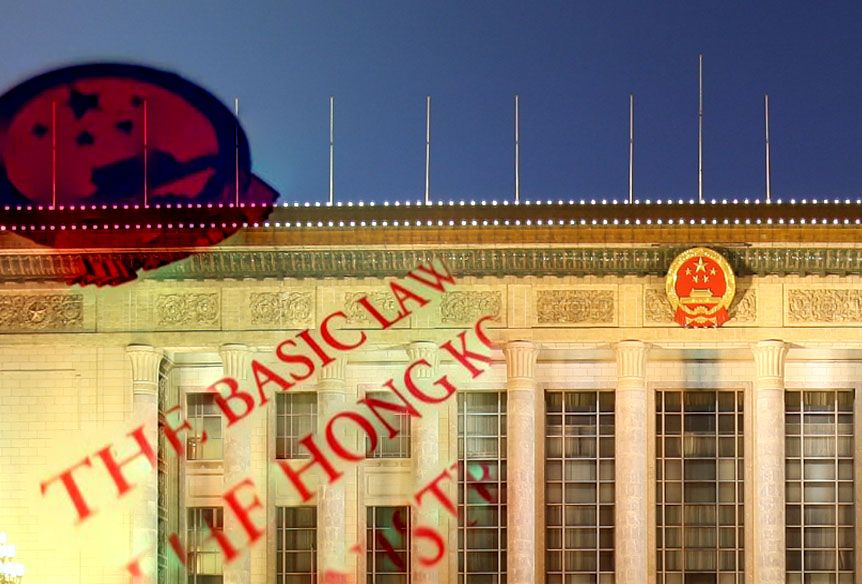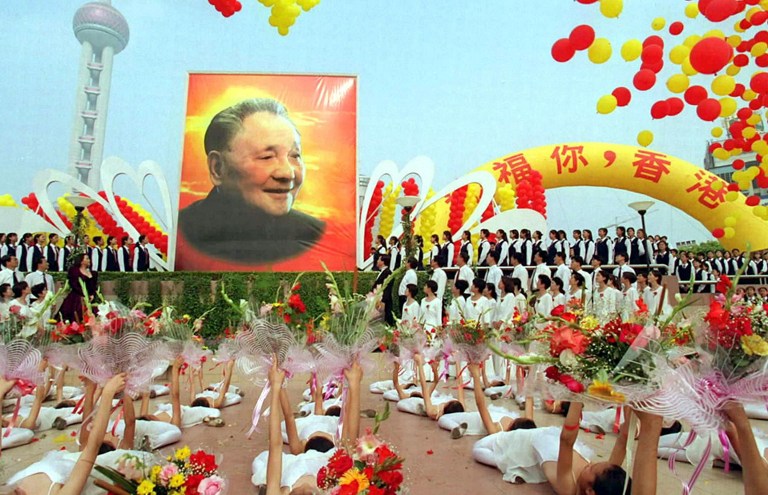British Member of Parliament Hal Miller wrote to the then Prime Minister in the wake of the 1989 Tiananmen massacre saying that China would offer “flexibility” in the drafting of Hong Kong’s Basic Law in exchange for economic help. The message was sent two weeks after the bloody crackdown and was relayed by a trusted Hong Kong friend of his, newly declassified files reveal.
The document was included in a batch of cabinet files from the Margaret Thatcher government. They were recently declassified from the National Archives in London and released online on Friday by the Margaret Thatcher Foundation.

“I received an approach from an old friend of mine in Hong Kong for whom I can vouch to say that President Yang of China would like to make contact through me with your government,” Miller wrote on June 21, 1989, recalling an encounter two days previously.
Miller joined the Colonial Service and was posted to Hong Kong in 1955 where he became deputy director for commerce and industry. He returned to the UK in 1968.

“The suggestion was that I should visit him in China before the end of July to discuss China’s need for economic help in the form of soft loans and continued investment, against which China would be prepared to offer further flexibility in the draft Basic Law on Hong Kong,” he wrote.
The Basic Law – the city’s mini-constitution – took effect when Britain handed its colony back to China in 1997.

Loans and investment
Miller said the request had to go through him and not official channels. He said the same thing happened in 1983 during the Sino-British Joint Declaration negotiations, when he liaised with a member of the Politburo responsible for Hong Kong.
“In my experience this is quite a common Chinese tactic to approach through a third party who can later be dropped if matters don’t progress without loss of face on either side,” he wrote.
He said in the letter that the friend rang on June 21 again claiming that Chinese leader Deng Xiaoping wanted to meet him if he can ensure that he has access to Thatcher, to discuss three items: Sino-British relations, Hong Kong, soft loans and investment.
See also: 200 dead could bring 20 years of peace, ex-China leader Deng said ahead of Tiananmen massacre
Miller wrote that he thought there was nothing to lose by exploring the channel, which he was told originated from Deng’s personal assistant.

However, the suggestion received opposition from the British embassy in Beijing and the Hong Kong governor at the time, as recorded in the documents. British Ambassador Alan Donald said it would be an “unwise political risk.”
“Neither [Chinese Premier] Li Peng nor the Chinese leadership can be trusted to pass up the chance of maximum propaganda advantage from a visit from someone seen as an influential conservative member of Parliament with close connections with Hong Kong,” he wrote.
See also: In Pictures: June 4, 1989 – the night the tanks rolled into Beijing’s Tiananmen Square
“I do not think it is possible to make any distinction between saying this was a private decision on the part of a member of Parliament and not any kind of semi-official contact with HMG,” he added. “The Chinese are experts at suggestio falsi [Latin for suggestion of an untruth].”

David Wilson, governor of Hong Kong at the time, also wrote that he could not see how publicity for such a visit could be avoided.
“In Hong Kong terms I do not believe we have anything to gain from such a visit. On the negative side there would be some criticism here of contact with the leadership. And Li Peng in particular. Soon after the massacre,” he wrote.

Thatcher responded to Miller on June 26 writing that she understood British foreign minister Geoffrey Howe was in touch with him to discuss a response. It was unlikely the visit occurred.
See also: UK granted 6 special visas to Chinese ‘in extreme danger’, days after 1989 Tiananmen massacre
The Tiananmen massacre occurred on June 4, 1989 ending months of student-led demonstrations in China. It is estimated that hundreds, perhaps thousands, of people died when the People’s Liberation Army was deployed to crack down on protesters in Beijing.
Miller died last year aged 86.
